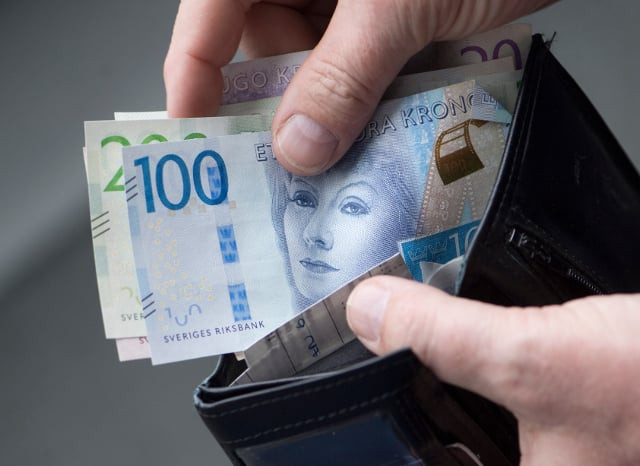Sweden's government has announced a raft of tax cuts aimed at providing much-needed relief to households grappling with the impact of inflation and rising interest rates. These cuts, which will take effect in 2025, mark a significant shift in the government's fiscal policy, reflecting a growing confidence in the country's economic outlook.
The most dramatic of these changes is the introduction of a tax-free threshold for investment accounts, including the popular ISK, Kapitalförsäkring and the new Pan-European Personal Pension Products (Pepps).
Tax-Free Investment Accounts: A Boon for Foreigners and Investors
The tax-free threshold, set at 150,000 kronor in 2025 and increasing to 300,000 kronor in 2026, is a major incentive for both domestic and foreign investors. This move effectively eliminates the so-called "schablonskatt", a flat tax of 3.62 percent levied on these accounts, regardless of whether the investments generate a profit or loss.
Attractive to Foreign Investors
For foreigners living and working in Sweden, this new tax-free threshold is particularly attractive. It makes investing in equities, bonds, and funds significantly more appealing than in the past. Previously, the schablonskatt, while often a better deal than paying capital gains tax outside of an investment account, was still less competitive compared to tax-free investment accounts available in countries like the UK and the US.
A Boost for Swedish Savings
The decision to make the first 150,000 kronor tax-free next year and 300,000 kronor tax-free in 2026 makes saving in Sweden far more attractive. The inclusion of Pan-European Personal Pension Products means that foreign workers can retain their tax-free savings accounts even when moving to another EU country, or avoid tax accounts on accounts opened and held abroad.
Potential for Tax Planning and Economic Impact
While the government estimates that the tax cuts will generate savings of 750 kronor per year for someone with the median ISK account of 78,000 kronor, the potential for tax planning is significant.
The National Institute of Economic Research, a government agency tasked with monitoring Sweden's business cycle, has expressed concerns that the tax cuts could cost much more than the estimated 7 billion kronor. They argue that the policy may encourage wealthier individuals to engage in tax planning strategies. For instance, a family of four could potentially open four ISK accounts, maximizing their tax-free savings to 1.2 million kronor by 2026.
The government acknowledges the potential for tax planning but maintains that the tax cuts are intended to stimulate economic activity and boost household spending.
Beyond Investment Accounts: A Broader Economic Agenda
The tax cuts on investment accounts are just one part of a larger economic package that the government is introducing.
The government has pledged to submit a budget proposal by September 19th, outlining additional measures aimed at supporting households and boosting infrastructure spending. These measures are expected to total approximately 60 billion kronor and will further demonstrate the government's commitment to stimulating economic growth in the face of global economic challenges.
A Signal of Confidence
The government's decision to implement these tax cuts reflects a growing confidence in Sweden's economic recovery. After battling high inflation in 2022 and 2023, the government believes that the economy is now stable enough to support a more expansionary fiscal policy.
A Balancing Act
The tax cuts, however, are not without their critics. Some argue that they could lead to higher government debt and increased inequality. The government maintains that the measures are a necessary step to ensure that everyone benefits from Sweden's economic growth.
A New Era of Economic Policy in Sweden
The tax cuts mark a significant departure from the austerity measures that have characterized Sweden's fiscal policy in recent years. They represent a new era of economic policy, one that prioritizes growth and sustainability. The long-term impact of these measures remains to be seen, but they are sure to shape the economic landscape of Sweden for years to come.
This move signifies a shift towards a more growth-oriented approach and could further solidify Sweden's position as a haven for investment in the region.

















